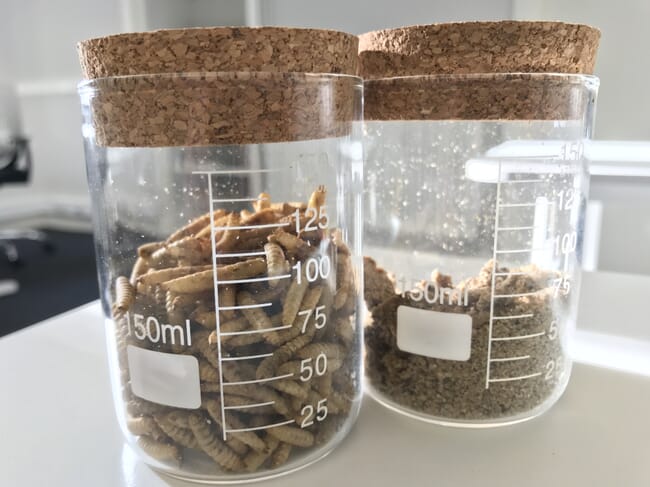The EU’s decision to allow the use of insects in aquafeeds from July 1st, will overturn a ban on the practice which came into force in 1998 following the BSE crisis. In response to the change in legislation, Multibox, based at the Royal Agricultural University, is developing an insect meal from black soldier fly (BSF) larvae fed on food waste. The company claims to be committed to becoming “the world’s lowest cost producer of insects for the aquaculture industry”.
According to Multibox, around a quarter of UK food - equating to 10 million tonnes in 2014 - is wasted between the farm gate and the consumer, at a cost of £38 billion per annum. Multibox’s insects are fed on this food waste, which makes, they argue, “our insect meal and insect oil completely sustainable”.
As it bids to scale up production, Multibox plans to build commercial scale insect farms and bring three products to market in the next 18 months: an insect meal which is used as a substitute for fishmeal in aquafeed, an insect oil to be used in aquaculture, pig and poultry feeds and insect excrement that can be used as a fertiliser. The fertiliser will be used to improve yields in agriculture, horticulture and hydroponics. These three products will initially be produced in the UK.

© Multibox
Managing Director, Paul Wright, says: “The EU’s decision to alter the processed animal products legislation has opened the door for companies like us to work with the waste producers and the animal feed manufacturers to deliver a sustainable high quality fish feed whilst ensuring we leave the planet in a better condition for future generations”.
Director of Farming and Value Creation, James Wright, adds: “I’m excited about the potential for farming Black Soldier Flies. We know from research that it is a like-for-like replacement for fishmeal and can be produced on waste. The issue has always been- can we up scale the insect farming process to produce enough insects to meet industry demand and we are sure we can.”
The Fish Site contacted the company to find out more details of the design of the proposed farms, their intended production locations, or how they intend to be the planet’s most economical provider of insect-based products. However, due to commercial sensitivities, Multibox is not yet able to divulge such information.
The Fish Site contacted the company to find out more details of the design of the proposed farms, their intended production locations, or how they intend to be the planet’s most economical provider of insect-based products. However, due to commercial sensitivities, Multibox is not yet able to divulge such information.

